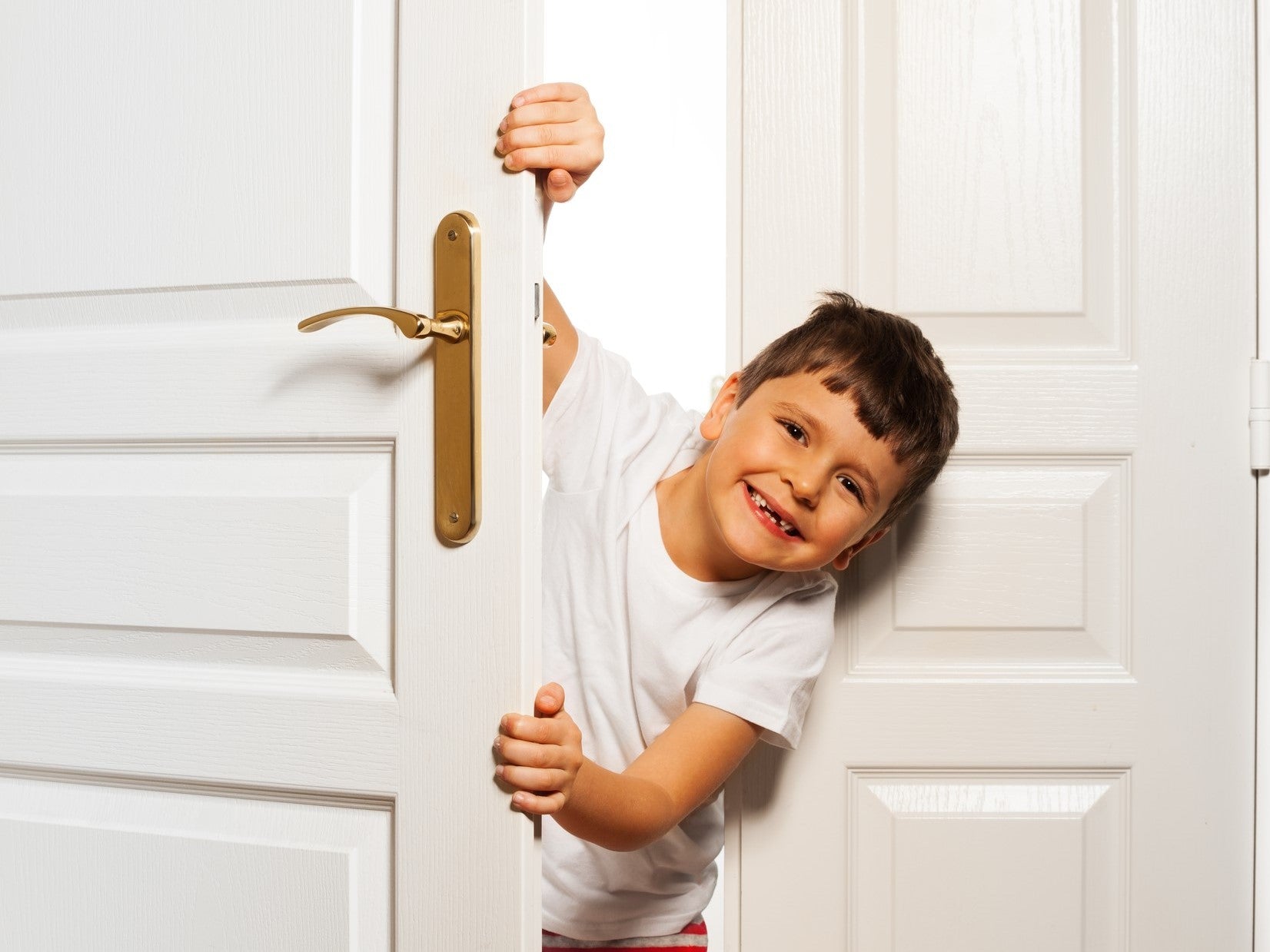
Using jokes is a fun and beneficial way to build language. Following are therapy ideas on how to teach puns and riddles and why joke-therapy can benefit our language-kids. The following is primarily applicable for children from late second-grade on up—even middle-schoolers.
In last week’s Therapy Matters (Jokes, Part 1; click here) we compared three types of jokes: Puns (play on words), Riddles (contain clues and a thought-provoking answer), and Jokes (story-like; usually have a punchline).
In addition to some fun and useful info in this Therapy Matters, there’s also two free downloads you can use to apply in your therapy.
Let’s begin with the benefits.
Joke Benefits (with a few strategies thrown in)
Puns
Puns are excellent to use for teaching word meanings, espeicially multiple meanings. Puns focus on vocabulary but also necessitate processing of the meaning. Frequently puns and riddles require prior knowledge. In some cases, it’s helpful to discuss the customary interpretation of the word/phrase before you discuss the pun.
Some puns are imbedded within a statement. Other puns, start with a question. It’s best to start with the statement puns. Why? Because all the words are given. Discuss the literal (obvious) meaning, then the “hidden” alternative and more humorous meaning. When they get the hang of analyzing pun-meanings, move on to the question type of puns.
Following are fun-to-teach puns. Here’s a statement pun with additional suggestions:
--The best way to communicate with a fish is to drop him a line. This is a great opportunity to cover multiple meanings. “What is the typical meaning of the phrase, drop him a line? What is the double meaning? Why is that funny? What words make it funny?” You may want to brainstorm things that associate with “fish” and “fishing.”
More statement puns:
--In the winter my dog wears his coat, but in the summer he wears his coat and pants.
--The best way to stop a charging bull is to take away his credit card.
--Fish are smart because they live in schools.
--Energizer Bunny arrested – charge with battery!
--A chicken crossing the road is poultry in motion!
--He bought a donkey because he thought he might get a kick out of it!
--A skunk fell in the river and stank to the bottom!
Question Puns:
--What do you call an alligator in a vest? An investigator!
--How do turtles talk to each other? By using shell phones!
--Why are teddy bears never hungry? They are always stuffed!
--Why did the spider go to the computer? To check his web site!
--Why are playing cards like wolves? They come in packs!
--Did you hear about the guy whose whole left side was cut off? He’s all right now. (I really like that one, for some goofy reason!)
Keep in mind that sometimes puns and riddles overlap. A riddle can have an answer that has a pun in it.
Riddles
Riddles keep your brain sharp! They require memory and interpretation that involves thinking outside the box. Following are three riddles for you. No doubt, they will be too advanced for some of your kids. Think what you do as you try and solve the riddle. These are the things you can share with your kids as they try and solve their (easier) riddles.
What are the basics to solving riddles: know the vocabulary, pull up prior knowledge, remember the contents of the riddle, etc., but the real challenge is to very literally, think of alternatives—again, think outside the box. Riddles are advanced language. The answers are at the end of this email. Here ya go:
- A grandmother, two mothers and two daughters went to the café for some tea. They ordered one cut each. What was the total number of cups that they ordered?
- Round and round I go never stopping in a continuous flow. I hang out with numbers each and every day and nothing ever gets in my way. What am I?
- How can you add eight 6s together so that the total adds up to 750?
Therapy Ideas
Click HERE to download a FREE list of kid-friendly Riddles & Puns that you can use immediately in therapy.
Click HERE to download the FREE cards that correspond to the Riddles & Punspage. Just print the three pages and cut into cards to use in your games. To make opaque, laminate each page with a piece of card stock.
Reinforce Reading Skills
Use the short phrases and sentences to enhance reading skills. Depending on the children’s capabilities, either you read first and have them echo you (echo reading), or, they read it. You may even consider doing “choral reading” of the joke. Personalize it by having each child asking (or telling) each other the jokes. (Good for practice of saying questions.)
Joke of the Week
At the beginning of each week, write/post the first part of the pun or riddle on the whiteboard/bulletin board. You or a child reads it. Discuss it, give clues if you want, and ask them to come up with an answer by the time you meet again next time. Keep it posted for all your therapy sessions. Next session, field their answers. Discuss the vocabulary and the meaning of the pun or riddle, how they figured it out, etc., and put the names of the winners on the “congratulation” board.
Kid’s Joke Book
The kids (you decide, of course) keep a “Joke Book” and put the jokes (puns and riddles) they really like in their book. This helps them remember the jokes so they can better share them with their friends. They may wish to illustrate it. Ask them to be on the look out in class and at home for good jokes. Some kids really like this assignment. Therefore, as a general rule, you may want to allow one or two children to share one joke per therapy session.
Play Games
Put the puns and riddles on cards and play games (see above free Puns & Riddles). Use them with any board game you have or use them with pocket charts (cards with lead-in sentences on one chart, answers on the other), etc., etc. Split up into teams, see who can get and explain the most number of puns or riddles.
Display Their Jokes
You and your kids create original puns and riddles. Post them, audio or video record them, suggest that the child retell the jokes to their friends, etc. May want to have a section on your therapy room wall just for creative and favorite puns and riddles.
Venn Diagram
Brainstorm why a joke is funny or not. Take a vote (have them write their vote on paper, otherwise they all vote the same way) as to who thought it was funny and who thought is wasn’t. Ask them to support and contrast their opinions and ideas on a Venn Diagram (either on paper or one you draw on the board).
● ● ●
Answers to the above riddles:
- Three, one for each person (the grandmother is also a mother and the mother is also a daughter)
- The hands of a clock.
- 666 + 66 + 6 + 6 + 6 = 750
How did you do?!
Have a wonderful and very blessed Easter. See you next week!
Thanks for all you do,
Char Boshart
Leave a comment (all fields required)
Comments will be approved before showing up.

![#71 Telepractice Tips 'n Info (Part 4) [Is my child working or just playing games?]](http://speechdynamics.com/cdn/shop/articles/Game_Pieces_and_Hand_7_x_3_2048x.jpg?v=1605804364)